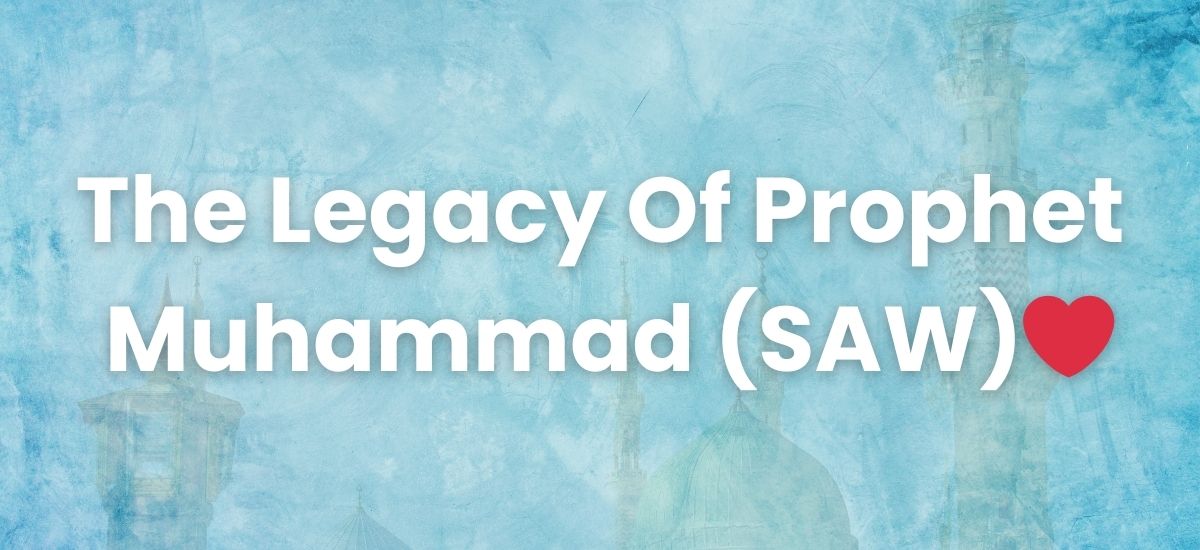Table of Contents
ToggleIntroduction
In the annals of history, certain figures transcend their temporal confines to become timeless beacons of wisdom, compassion, and guidance. Among these luminaries stands Muhammad (SAW), a name synonymous with profound spirituality and transformative leadership. As we embark on a journey to unravel the life and message of this revered figure, let’s delve into the depths of history to discover the profound impact Muhammad (SAW) had on the world.
Muhammad (SAW), an acronym for “Sallallahu Alayhi Wasallam,” which translates to “Peace and Blessings be upon Him,” was not just a historical figure but a living embodiment of divine guidance. His life unfolded in 6th and 7th century Arabia, a time of societal upheaval and moral turbulence. Against this backdrop, Muhammad (SAW) emerged as a beacon of moral rectitude, preaching a message that would resonate through the ages.
At the heart of Muhammad’s (SAW) message was the call to monotheism, a fundamental belief in the Oneness of God. His teachings emphasized compassion, justice, and the importance of building a just and harmonious society. As we explore the facets of Muhammad’s (SAW) life and his transformative message, we will navigate through the historical tapestry that shaped his legacy and continues to inspire millions around the globe.
Join us in this exploration of the life, teachings, and enduring legacy of Muhammad (SAW), as we strive to understand the profound impact of his message on individuals, societies, and the course of human history.
The Early Life of Muhammad (SAW)
1.1 Birth in Mecca (570 CE):
Muhammad (SAW) was born in Mecca in 570 CE, heralding a life destined for greatness. His birth marked the beginning of a transformative journey that would leave an indelible mark on the course of history.
1.2 Orphanhood, upbringing by family:
Tragedy struck early in Muhammad’s (SAW) life as he became an orphan. However, his extended family, particularly his grandfather and later his uncle, played crucial roles in providing him with a nurturing and supportive environment.
1.3 Early display of honesty and justice, earning the title “Al-Amin”:
Even before the divine revelations, Muhammad (SAW) earned the moniker “Al-Amin,” the trustworthy, due to his unwavering honesty and commitment to justice. These early qualities foreshadowed the profound impact he would have as the Messenger of Allah.
The Divine Revelation and Prophethood
2.1 Age 40: First revelation from Allah through Angel Gabriel:
At the age of 40, Muhammad (SAW) experienced a life-altering event – the first revelation from Allah conveyed through the Angel Gabriel. This marked the beginning of his prophethood, setting the stage for the dissemination of divine guidance.
2.2 Compilation of revelations into the Quran:
Over the next 23 years, the revelations received by Muhammad (SAW) were meticulously compiled into the Quran, forming the spiritual cornerstone of Islam. This sacred text became a beacon for believers, guiding them towards a life of virtue and righteousness.
2.3 Islam’s foundation in monotheism, social justice, and compassion:
Muhammad’s (SAW) message emphasized the oneness of God, promoting social justice, and encouraging compassion. Islam’s core tenets, rooted in monotheism, provided a foundation for a just and equitable society.
The Message of Islam
3.1 Inviting humanity to worship one true God, Allah:
Muhammad (SAW) called upon humanity to embrace monotheism and worship the one true God, Allah. This central tenet remains a foundational principle of Islam, uniting believers across diverse cultures and backgrounds.
3.2 Emphasis on compassion, charity, justice, and societal equality:
The message of Islam, as conveyed by Muhammad (SAW), encompasses values such as compassion, charity, justice, and societal equality. These principles continue to guide Muslims in their personal lives and interactions with the broader community.
3.3 Quranic guidance on faith, ethics, and governance:
The Quran, revealed to Muhammad (SAW), provides comprehensive guidance on matters of faith, ethics, and governance. Its teachings serve as a timeless source of inspiration for Muslims seeking to lead virtuous lives and contribute positively to society.
Challenges and Triumphs
4.1 Facing opposition from the Quraysh tribe:
Muhammad (SAW) encountered significant opposition from the Quraysh tribe in Mecca, challenging the nascent Muslim community. Despite adversity, his steadfastness and resilience laid the groundwork for the eventual triumph of Islam.
4.2 Persecution of early followers:
Early followers of Muhammad (SAW) faced persecution and hardship, yet their unwavering faith mirrored the resilience of their leader. This period of tribulation ultimately strengthened the resolve of the Muslim community.
4.3 Migration to Medina and eventual triumph of the Muslim community:
The migration to Medina, known as the Hijra, marked a turning point. Muhammad’s (SAW) leadership, coupled with the support of his followers, led to the establishment of a thriving Muslim community and the eventual triumph of Islam in the Arabian Peninsula.
The Last Sermon and Legacy
5.1 Farewell sermon during the last pilgrimage:
In his farewell sermon during the last pilgrimage, Muhammad (SAW) conveyed core principles of Islam, emphasizing unity, equality, and social justice. This poignant moment encapsulated the essence of his teachings.
5.2 Core principles of Islam: unity, equality, and social justice:
Muhammad (SAW) highlighted the importance of unity, equality, and social justice in his final sermon. These principles serve as a guiding force for Muslims striving to create a harmonious and just society.
5.3 Muhammad’s (SAW) passing in 632 CE and the enduring legacy:
The physical departure of Muhammad (SAW) marked the end of prophethood, but his enduring legacy continues to shape the lives of millions. His teachings, preserved in the Quran, serve as a timeless source of guidance and inspiration.
Conclusion
Reflecting on the universal principles found in Muhammad’s (SAW) life and message, one is struck by the enduring relevance of his teachings. The impact of his legacy transcends temporal and cultural boundaries, influencing individuals and societies worldwide. As we acknowledge this profound legacy, we recognize the ongoing importance of embracing the principles of compassion, justice, and unity that Muhammad (SAW) championed.




